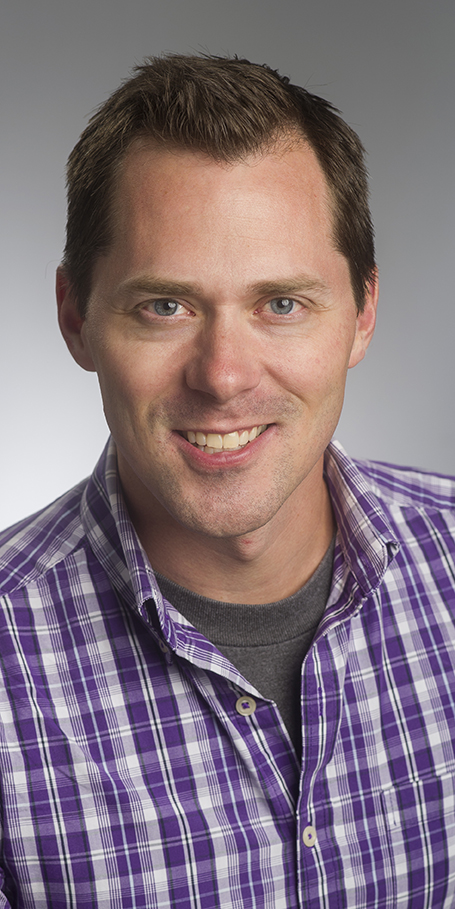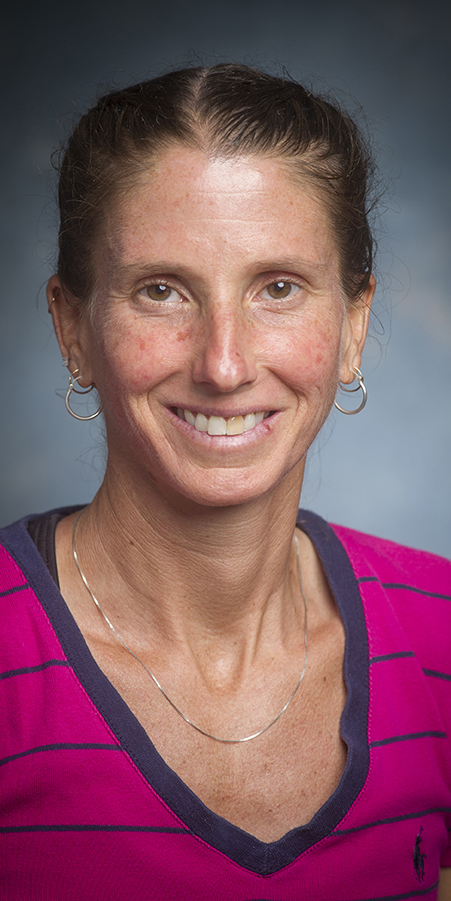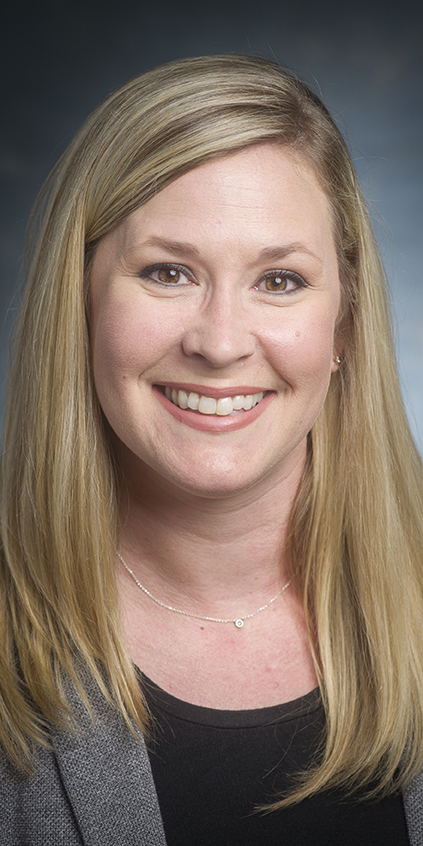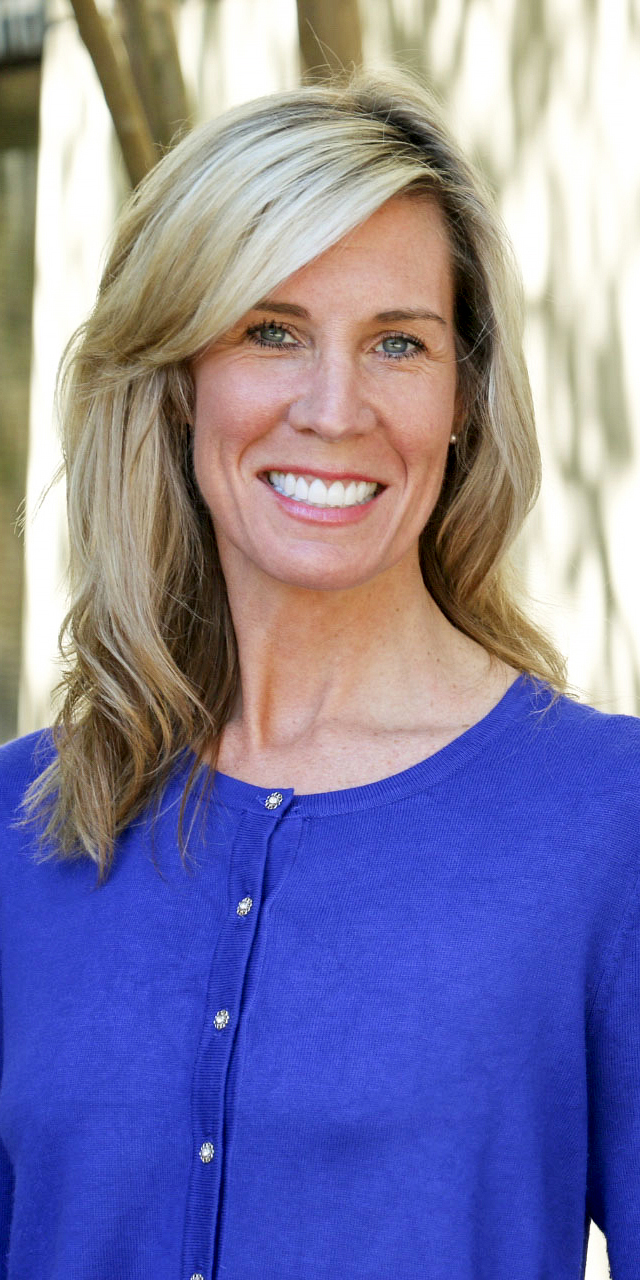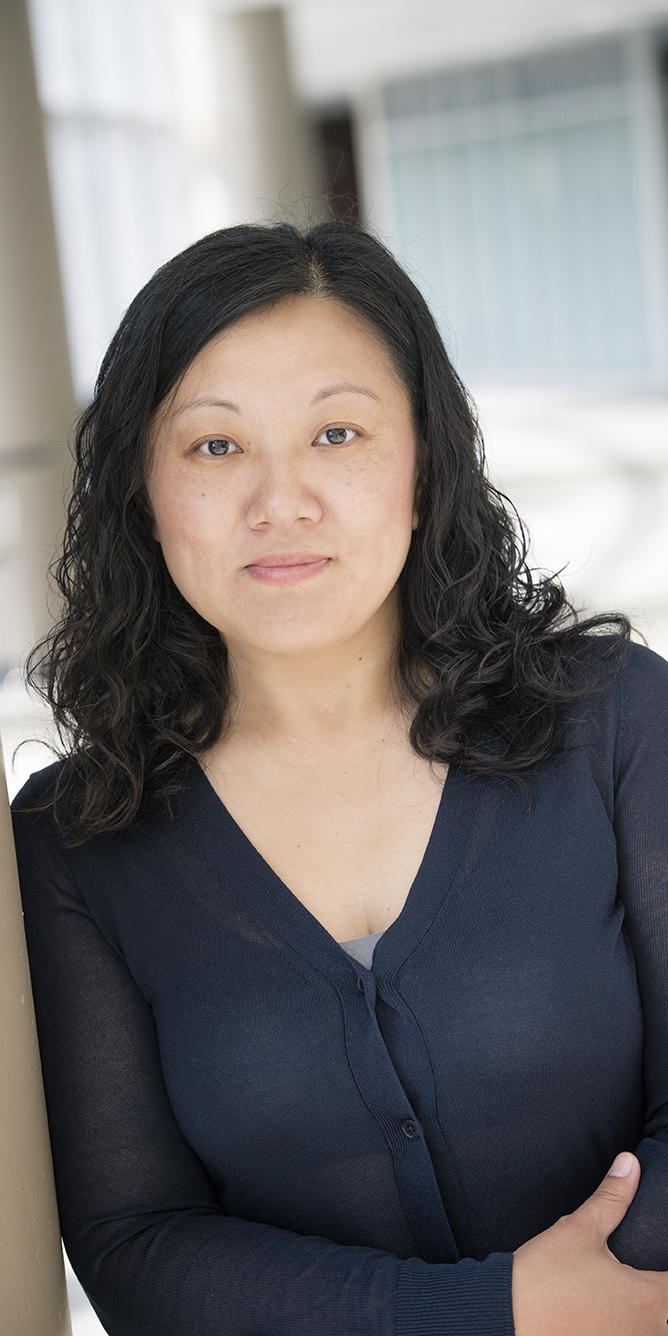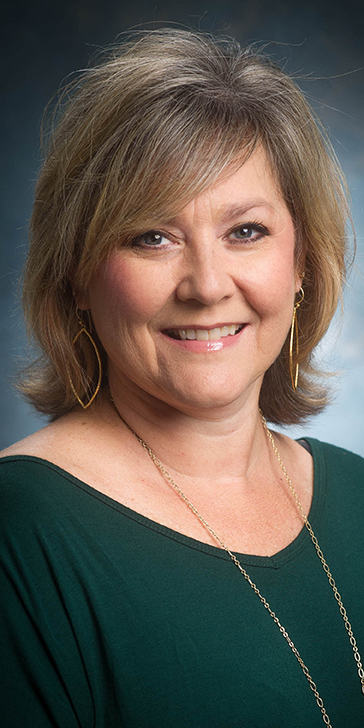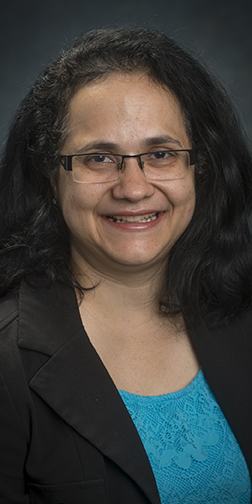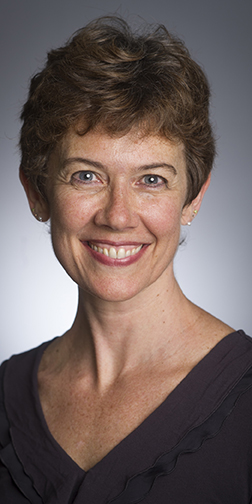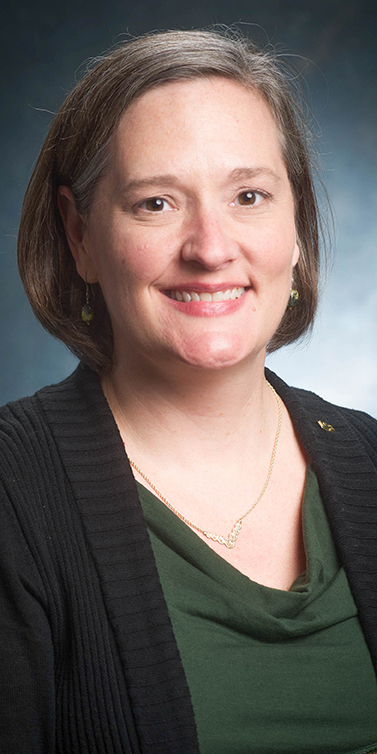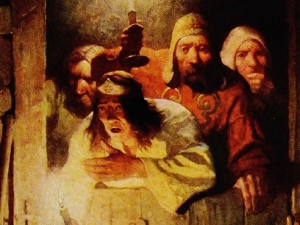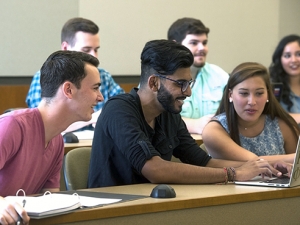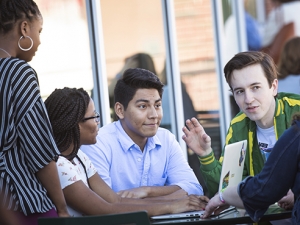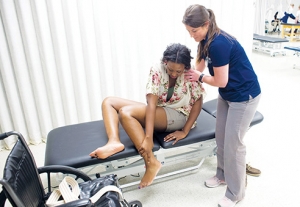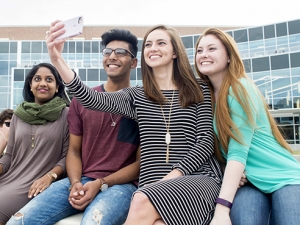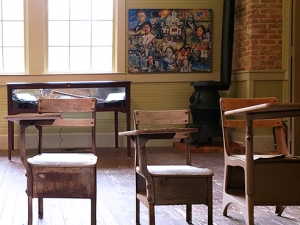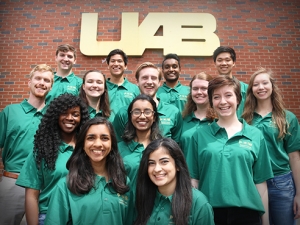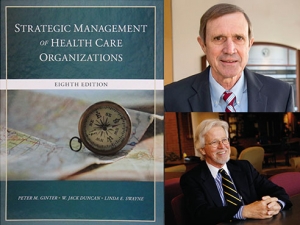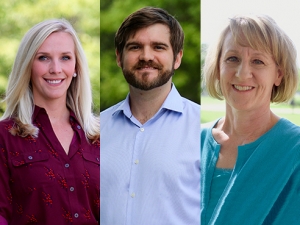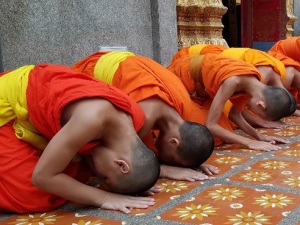The 2017-2018 cohort of Faculty Fellows in Undergraduate Research, tasked with designing new courses or modifying existing ones to incorporate a service-learning component, have developed ideas for service-learning to promote active and ethical citizenship, social responsibility and engagement in courses across disciplines.
“Service learning is such an integral part of UAB’s academic mission,” said Gareth Jones, assistant director of Service Learning and Undergraduate Research, which operates the program. “Giving students the opportunity to turn what they’re learning in the classroom into service to the community engages them in a way that a typical lecture-based course would not, and that was the goal of this fellowship.”
|
"Giving students the opportunity to turn what they’re learning in the classroom into service to the community engages them in a way that a typical lecture-based course would not, and that was the goal of this fellowship." |
Faculty met throughout the year period to exchange ideas with an academically diverse group, learn from the experiences of other fellows and develop a syllabus and other tools and resources needed to incorporate service-learning into their course. They also received a $1,500 enhancement grant to support course development and research.
The cohort included Andy Baer, Ph.D., assistant professor of history; Krista Casazza, Ph.D., associate professor of pediatrics; Nicole Gravitt, undergraduate adviser in the School of Public Health; Robin Lanzi, Ph.D., professor of health behavior; Josie Prado, Ph.D., assistant professor of curriculum and instruction; Ling Ma, instructor in the Department of Foreign Languages and Linguistics; Stacy Moak, professor of social work; Ana Oliveira, DrPH, assistant professor of clinical and diagnostic sciences; Angela Stowe, Ph.D., director of Student Counseling Services and Wellness Promotion; and Erika Austin, Ph.D., assistant professor of biostatistics.
Click through the slideshow below to learn more about several fellows’ projects.
-
Andy Baer
College of Arts and Sciences
Baer modified a course he’d taught once before within the Department of History. The updated course, HY 391, titled “Race and Policing,” will explore ways in which race affects policing in the United States through the lens of both law enforcement and social movements.
Baer said he wants to challenge students’ preconceptions of the criminal justice system through community partnerships with local police departments, police unions, prisoner re-entry programs and social movements for police accountability and the study of the history of race and policing since the 19th century.
“I hope students will discard one-dimensional opinions of law enforcement and criminal suspects and develop a fuller understanding of the complexity of crime and policing,” Baer said. -
Krista Casazza
School of Medicine
Casazza created HC 120-D, an introduction to nutrition course combined with lessons on medical nutrition therapy and service-learning. Students host cooking demonstrations in which participants prepare and eat a meal, which helps students get hands-on cooking experience and provides for the community at the same time.
Nutrition is a core component of medicine, Casazza says, and the desire to teach people about taking ownership of health options was an inspiration behind the creation of the course.
“I hope for a bi-directional learning experience for students and the community, in which student- and community-learners can appreciate ways in which cooking can be used for enjoyment, learning and improving health across their lifespans,” she added. -
Nicole Gravitt
School of Public Health
Gravitt modified PUH 101, “Transitioning to College, Exploring Public Health,” a first-year experience course for students interested in or majoring in public health, to help them adjust to college life while exploring options within their area of study. Gravitt wanted to make the course as reflective as possible — to get them to see it as more than just a required check in the box, she said.
“The main goal is that students learn to explore on their own and learn about themselves and that they can take different routes to work towards their academic and career goals,” Gravitt said. “My hope is that they learn to open up and truly understand why they are in college and discover various career options and the best path to take to get there.” -
Robin Lanzi
School of Public Health
Lanzi has long been committed to community-based research. Through her roles as director of academic programs in the Department of Health Behavior and co-director of the Center for AIDS Research Behavioral and Community Sciences Core, she has worked with UAB students, faculty and community members to reduce family and child/adolescent health disparities by advancing research methods and strategies.
Lanzi modified several adolescent health courses she has taught in the School of Public Health to include various experiential-learning and community-engagement components. Through the fellowship, she focused on learning new techniques and strategies to better integrate service-learning into the courses.
“Adolescence is a wonderful period of growth and change that marks a transition in a person’s life from dependence to independence, to growing and fostering their own unique identities, interests and pathways,” Lanzi said. “My hope is that students will come away from the course with an improved understanding of how we can promote positive youth development from a public health perspective through creative and engaging learning experiences, reflective opportunities and hands-on experiences in the field of adolescent health.” -
Ling Ma
College of Arts and Sciences
Ma integrated service-learning into CHI 102, “Introductory Chinese,” by grouping enrolled students with INTO UAB students from China and encouraging conversation to foster friendships and language practice for both groups.
“For Chinese English learners, it provides a way to practice English with a native speaker, improve cross-cultural communication skills and enhance American cultural understanding,” Ma said. -
Stacy Moak
College of Arts and Sciences
Moak created a service-learning study-abroad course, SW 478/599, “Women’s Rights and Health in Kenya.” Students traveled to Namanga, Kenya, during spring break to provide reusable sanitary pads to girls in rural Kenya, along with a lesson about adolescent health and menstrual health management, through a partnership with My Own Two Hands Foundation Tumaini Savannah View Academy. Reports indicate the program was a success, Moak says, and “changed lives in the area where we served.”
“Service-learning is a partnership, not a mission trip. Community partners are the ones best-suited to know what their communities need,” Moak said of the lesson she hopes students learn from the course. “Students benefit from the opportunity to experience a different culture and step out of their comfort zone. We wanted our intervention to be sustainable long after we left the area.” -
Ana Oliveira
School of Health Professions
Oliveira integrated a service-learning component into BHS 698, a course in which biomedical and health sciences graduate students write their non-thesis research and present a poster at the end of the semester. This past spring, her students researched health issues in vulnerable populations, working with community partners around Birmingham that serve those groups.
“I hope that by adding service-learning to the course, my students will have an opportunity to better understand social determinants of health and feel better equipped to serve as health care providers to a diverse population of patients,” Oliveira said. “I hope my students know the issues facing the communities around them better and use the skills they learn at UAB to truly change those communities.” -
Josie Prado
School of Education
Prado created an Honors College seminar, HC 396-3, titled “Alabama Black Belt: Service Learning,” to help students explore questions about the region, such as how the area, once one of the richest in the nation, became so impoverished. Students examined geographic features, demographics and socioeconomic factors and worked with GEAR UP Alabama to connect with ninth- and 10th-graders living in the Black Belt.
Prado partnered with Amy Badham, director of the Office of Service Learning and Undergraduate Research, to create the course, and said she is looking forward to seeing what students will learn.
“I am optimistic that UAB and GEAR UP students will have multiple opportunities throughout the course to interact with each other to build a genuine human connection,” she said. “There is much that we can learn from each other.” -
Angela Stowe
Division of Student Affairs
Stowe created CHHS 428, offered through the School of Education’s Community Health and Human Services program. CHHS 428 is the second-semester portion of UAB’s peer education curriculum, a partnership between the Department of Human Studies and UAB Wellness Promotion. It provides academic training to help students learn about their own health and well-being and explore ways to advocate for the care of others through the Promoters of Wellness (POW) program.
Service-learning can help students gain meaningful personal experiences and self-awareness and give them the tools to inspire other students to get involved, Stowe said.
“I have been impacted through my experience as a student through a service-learning experience and have also had the joy of teaching service-learning courses and witnessing the “aha” moments that happen through this pedagogy,” Stowe said. “The intentional integration of providing a service that impacts community needs with the learning through an academic course-for-credit not only engages the cognitive development of students, but also has the ability to provide personal and social transformation.”
